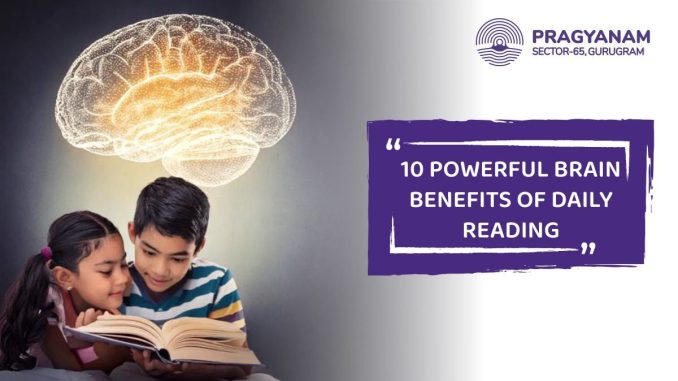
In an age dominated by fleeting digital interactions and the constant pull of instant gratification, the seemingly simple act of daily reading often takes a backseat. Yet, amidst the clamor of modern life, the quiet discipline of immersing oneself in text remains one of the most profoundly impactful activities for the human brain. Far from being a mere pastime, consistent reading fundamentally reshapes neural pathways, enhances cognitive functions, and cultivates a mental agility that is increasingly valuable in both personal and professional spheres. It is, in essence, a sophisticated workout for the brain, yielding benefits that resonate far beyond the pages of a book or article.
One of the most immediate and widely recognized impacts of daily reading is its remarkable ability to **enhance cognitive empathy and emotional intelligence**. When we delve into narratives, whether fiction or non-fiction, we are exposed to diverse perspectives, motivations, and emotional landscapes. Reading about characters’ struggles, triumphs, and inner thoughts allows us to step into their shoes, understanding the world from a viewpoint different from our own. This vicarious experience strengthens the brain’s capacity for “theory of mind”—the ability to attribute mental states to oneself and to others—which is a cornerstone of empathy. For a business leader, this translates into a heightened capacity to understand team dynamics, anticipate client needs, and navigate complex interpersonal negotiations with greater sensitivity and insight, leading to more effective leadership and stronger relationships.
Beyond emotional acuity, daily reading significantly **boosts vocabulary and communication skills**. Exposure to a wide array of words in context naturally expands one’s lexicon, offering a richer palette for expression. As new words are encountered, the brain works to infer their meaning from surrounding text, strengthening linguistic processing areas. This expanded vocabulary doesn’t just make one a more eloquent speaker or writer; it also refines one’s ability to articulate complex ideas with precision and clarity. In the business realm, where communication can make or break deals, the ability to express thoughts succinctly, persuasively, and accurately is an indispensable asset, directly benefiting from a consistent reading habit.
Furthermore, reading serves as a powerful tool for **stress reduction and mental relaxation**. In a world rife with stimuli that can trigger anxiety and overstimulation, the focused engagement required by reading offers a calming antidote. When immersed in a story or a compelling article, the mind is directed away from daily stressors, allowing for a respite that can lower heart rate and ease muscle tension. It provides a more structured and cognitively beneficial form of escapism compared to passive screen time. This mental decompression is crucial for maintaining overall well-being and preventing burnout, ensuring that cognitive resources remain sharp and readily available for problem-solving and critical thinking tasks.
Perhaps one of the most profound effects of consistent reading is its contribution to **cognitive longevity and the preservation of memory**. Research suggests that engaging in mentally stimulating activities like reading can help build cognitive reserve, essentially fortifying the brain against age-related decline. The act of reading requires the brain to process information, link concepts, recall details, and follow complex narratives—all processes that exercise memory circuits and keep neural networks active and healthy. For professionals, this means a sustained ability to retain new information, recall important facts, and maintain mental sharpness well into their careers, offering a protective shield against the cognitive erosion that can accompany aging.
Finally, daily reading fundamentally **enhances critical thinking and analytical abilities**. When we read, particularly non-fiction or complex arguments, we are not merely absorbing information; we are evaluating claims, identifying biases, synthesizing ideas, and forming our own conclusions. This active engagement strengthens the neural pathways involved in logical reasoning and problem-solving. For example, reading diverse analyses of economic trends or strategic business cases trains the mind to discern patterns, evaluate the credibility of sources, and foresee potential implications. This cultivation of a discerning mind is invaluable in navigating the complexities of modern business, enabling individuals to make more informed decisions, identify opportunities, and anticipate challenges with greater foresight.
In conclusion, the daily practice of reading is far more than a simple habit; it is a fundamental investment in one’s cognitive capital. It is a powerful catalyst for enhancing empathy, sharpening communication, alleviating stress, preserving memory, and refining critical thinking. In a competitive professional environment where adaptability and intellectual agility are highly prized, carving out dedicated time for reading is not a luxury but a strategic imperative. It ensures that the brain remains a vibrant, adaptable, and powerful instrument, capable of navigating the demands of the present and envisioning the possibilities of the future.